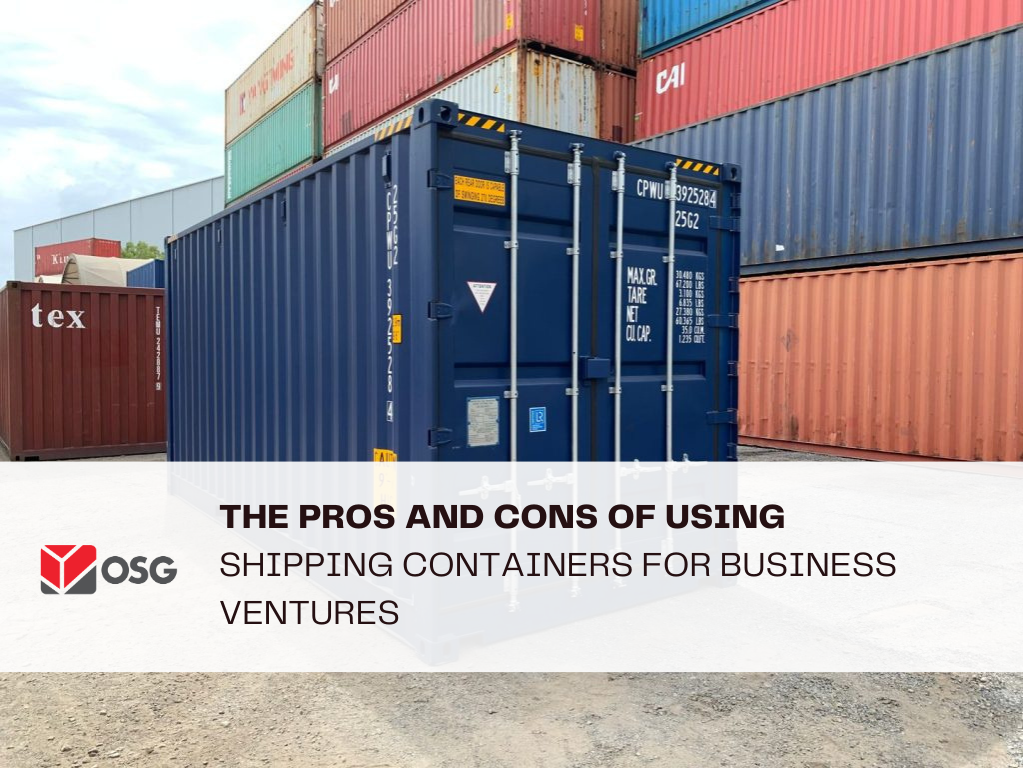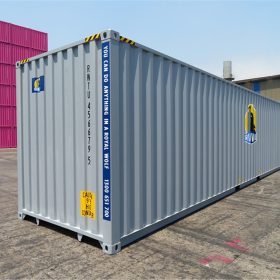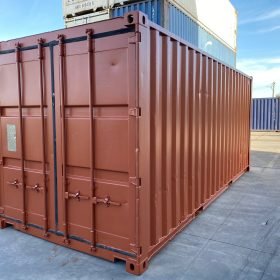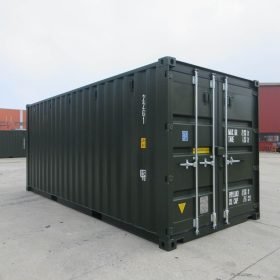The Pros and Cons of Using Shipping Containers for Business Ventures
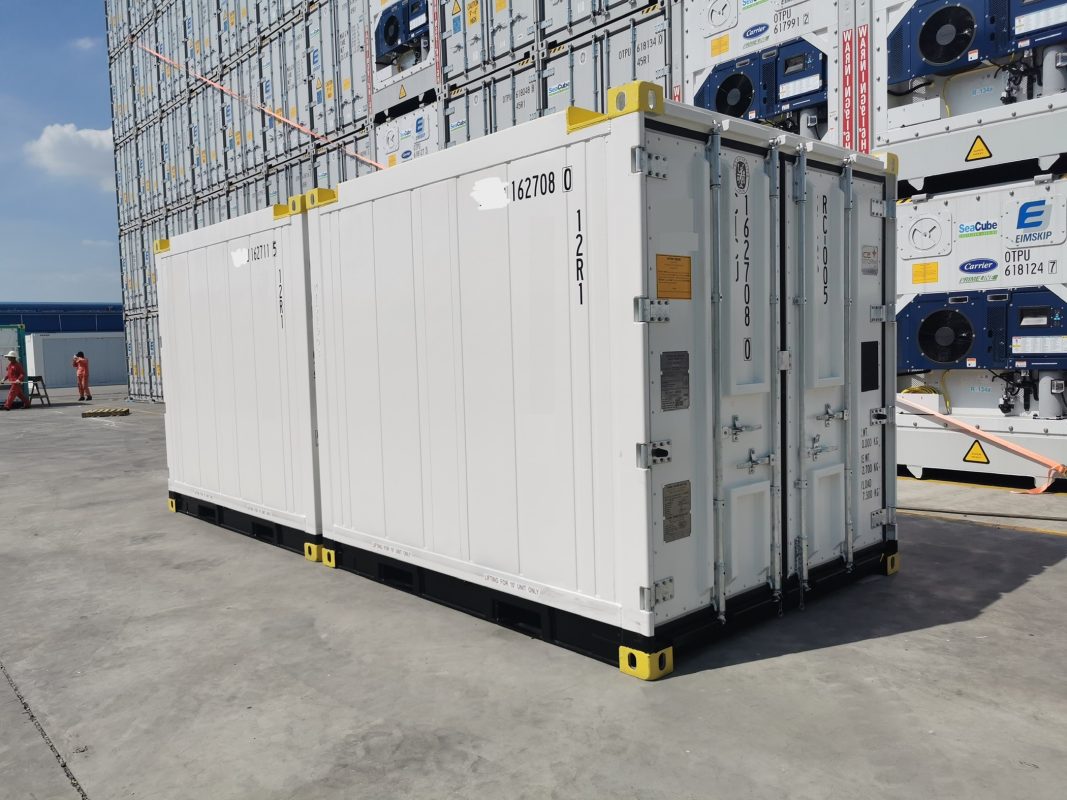
Shipping containers are no longer confined to ports or cargo ships. They have rapidly gained popularity as a versatile solution for a wide variety of business ventures, ranging from pop-up shops to restaurants and even offices. Their flexibility and durability make them a cost-effective alternative to traditional brick-and-mortar structures, but like any business decision, using shipping containers comes with its own set of advantages and challenges. Here, we’ll explore the pros and cons of incorporating shipping containers into your business venture.
Pros of Using Shipping Containers for Business Ventures
1. Cost-Effective
One of the most appealing aspects of using shipping containers for business is the relatively low cost compared to traditional construction. New construction or leasing a commercial space can be expensive, especially in high-demand areas. Shipping containers offer a more affordable entry point, making them attractive for startups or businesses that need a quick and cost-effective solution.
2. Mobility and Flexibility
Shipping containers are highly portable. Whether you need to relocate your business due to seasonal demand or simply want the flexibility to set up in different locations, shipping containers can be easily moved with minimal hassle. This is particularly beneficial for businesses that rely on mobility, such as food trucks, pop-up stores, or event-related enterprises.
3. Durability and Strength
Built to withstand extreme weather conditions and heavy loads, shipping containers are incredibly durable. They are made from heavy-duty steel, designed to survive years of rough handling. This makes them resistant to weather, wear and tear, and even fire, providing a secure space for your business operations.
4. Eco-Friendly and Sustainable
Repurposing shipping containers can be an environmentally friendly business choice. By giving old containers a second life, you’re reducing the demand for new materials and decreasing waste. This aligns with the increasing global push toward sustainability, which can also serve as a selling point for your business, attracting eco-conscious customers.
5. Quick Construction Time
Another advantage of using shipping containers is the speed with which they can be converted into functional spaces. Traditional construction can take months or even years to complete, whereas a shipping container can be modified and ready for business in a matter of weeks. This allows entrepreneurs to get their ventures off the ground quickly, which is crucial in today’s fast-paced business environment.
6. Customizability
Shipping containers are modular by nature, allowing businesses to stack and arrange them in various ways to create unique layouts. They can be fitted with windows, doors, insulation, and any other amenities that a traditional business space might need. This flexibility in design means you can tailor the container to suit the specific needs of your business.
Cons of Using Shipping Containers for Business Ventures
1. Limited Space
Shipping containers, while modular, do have space limitations. A standard 20-foot container offers only 160 square feet of usable space, while a 40-foot container provides 320 square feet. This can be restrictive for businesses that require more room, such as retail outlets with large inventories or offices that need room for multiple employees. Expansion usually means adding more containers, which may complicate the design and increase costs.
2. Zoning and Permitting Challenges
While shipping containers are a creative solution, they can also present bureaucratic challenges. Depending on the location, you may face zoning regulations that restrict the use of containers for commercial purposes. Additionally, obtaining the necessary permits can be time-consuming and complicated. It’s important to check with local authorities to ensure that your business venture complies with all regulations before investing in shipping container modifications.
3. Insulation and Temperature Control
Shipping containers are made of steel, which means they can become extremely hot in the summer and unbearably cold in the winter. Without proper insulation and ventilation, this can create an uncomfortable environment for employees or customers. Insulating a container adds to the overall cost and time of setting up the business, making it an important factor to consider, especially in areas with extreme weather conditions.
4. Structural Modifications Can Be Costly
While containers are highly durable, making significant structural changes, such as cutting out sections for windows, doors, or larger spaces, can be expensive. These alterations require specialized labor and can compromise the container’s structural integrity if not done correctly. Additionally, retrofitting a container with plumbing, electricity, and HVAC systems can also drive up costs.
5. Aesthetic Limitations
While some people appreciate the industrial look of shipping containers, others may find them unattractive or too stark for certain business types, such as high-end retail or dining establishments. Although you can customize the container’s appearance, such as adding cladding, paint, or branding, it might require additional investment to align with the aesthetic standards of your target audience.
6. Foundation Requirements
Despite their portability, shipping containers still require a proper foundation, especially if you plan on using them for an extended period. Failing to install a stable foundation can lead to long-term issues such as uneven settling, water damage, or even structural collapse. A solid foundation adds to the overall cost and can negate some of the cost-saving benefits of using a container.
Conclusion
Using shipping containers for business ventures offers numerous advantages, including cost-effectiveness, durability, and eco-friendliness. However, potential downsides like space limitations, insulation challenges, and zoning regulations should be carefully weighed. Ultimately, whether a shipping container is the right choice for your business depends on your specific needs, budget, and the environment in which you plan to operate. When done right, a shipping container can be a unique, functional, and profitable solution for a wide range of businesses.

